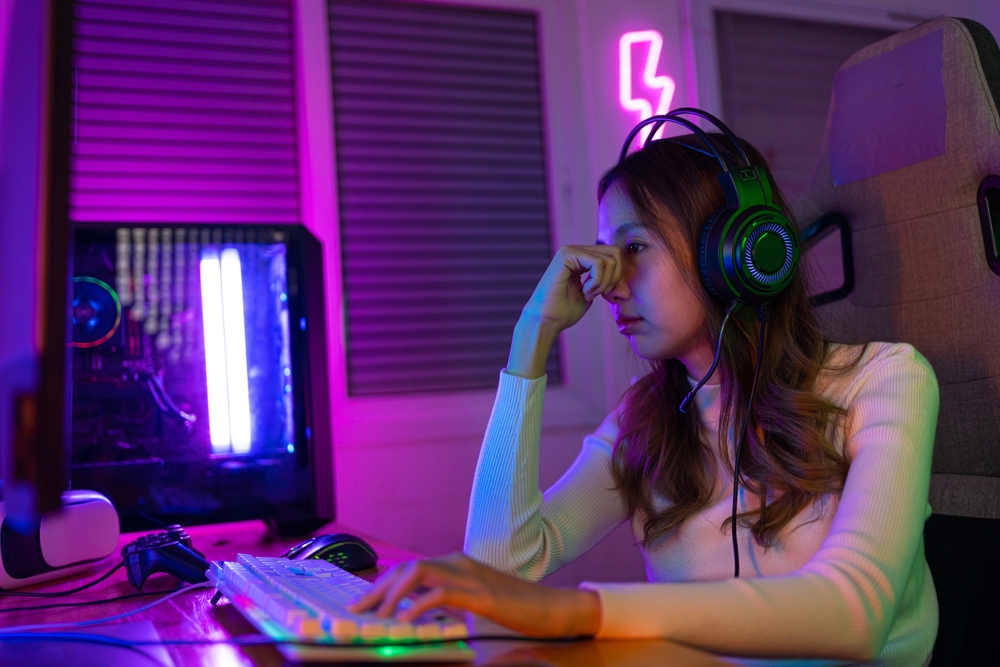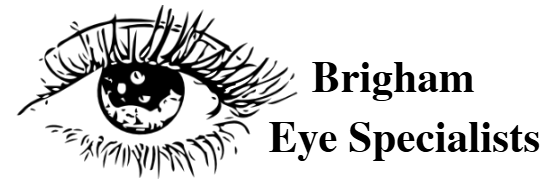
People love their phones, tablets, and laptops. But before you notice, too much screen time affects your eyes, body, and mind. This article shares signs you are overdoing screen usage. We also share easy ways to cut back on screen time.
Straining, Irritated Eyes
Blurry Vision
Staring at screens all day tires eye muscles. Less blinking dries your eyes out. Vision goes blurry without enough moisture and lubricating tears. After too much screen use, words start looking blurry.
Red, Irritated Eyes
Intensely focusing on screens means less blinking. Your eyes get parched without tears. They grow red, dry, and irritated. Discomfort builds all day from poor moisture.
Headaches
Eyestrain from screens often causes headaches. Squinting to see phones strains eyes, too. Vision issues like presbyopia also contribute. Pounding pain around the eyes or head frequently results from too much screen time.
Body Discomfort
Aching Neck and Back
Slouching over devices all day strains neck and back muscles. Nerves get compressed without moving, causing growing inflammation and throbbing. Sustained bad posture guarantees intensifying pain.
Stiff, Tight Muscles
Sitting motionless and staring at screens tightens your muscles. Reduced blood flow to tense areas causes cramping. When you don’t move enough, stiffness and tension build in contracted muscles.
Disrupted Sleep
Delayed Sleep Onset
Your brain mistakes blue light from screens for daylight, which delays natural melatonin release that makes you sleepy. You may find yourself attempting to fall asleep for hours without this sleep signal.
Restless, Light Sleep
Stimulating content and blue light disrupt quality sleep. Stress hormones like adrenaline repeatedly jar you awake. Suppressed melatonin hampers rejuvenating REM deep sleep, too. As a result, you wake up feeling unrested.
Mental Effects
Scattered Focus
Stimulating digital input overwhelms the brain. It grows more challenging to concentrate on one task.
Mood Instability
Seeing curated perfection online sparks unrealistic expectations about life. When you always compare yourself with others, you’re left feeling dissatisfied. Inadequacy spirals anxiety, depression, and isolation over months of this behavior.
Finding Balance
Tune In to Early Warnings
Note small changes signaling too much screen time before they become serious issues. Monitor shifts in energy, mood, concentration, and eye comfort. Adjust your screen habits way below your tipping point. Stay alert to sluggishness, crankiness, and blurry vision.
Institute Reasonable Limits
Set reasonable device limits tailored to your needs. For example, you can charge devices away from your bed at night for better sleep. Schedule necessary computer work earlier when energy levels peak. Be strict about when to stop to prevent exhaustion.
Stick to Timeframes That Work
Experiment with different time limits for devices. Find the right amounts personalized for you. For instance, restrict social media to 30 minutes after work before it becomes a time sink. Identify and implement appropriate guardrails.
Perspective Check
Ultimately, your mental and physical well-being matter most. Moderation ensures technology helps more than it harms. Stay alert to over-usage and make little tweaks. Small changes make significant daily life improvements, lowering screen fatigue. Keep sight of real-world priorities.
The key lies in balancing screen habits with self-care for optimal health. Listen when your body gives warnings. Little adjustments go far in preventing big problems down the road. Stay positive and nourish mental and physical energy daily.
For more eye care tips, visit Brigham Eye Specialists at our offices in Brigham City, Utah. Call (435) 734-2097 to schedule an appointment today.
Sources:
https://www.aao.org/newsroom/news-releases/detail/protect-your-eyes-from-too-much-screen-time
https://www.sleepfoundation.org/bedroom-environment/blue-light




